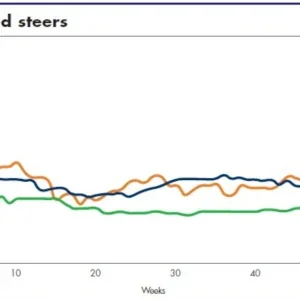BASF have completed the first half of 2006 with record results, exceeding the previous year’s strong results. Second-quarter sales climbed 16% to €12.3 billion and income from operations (EBIT) before special items rose 15% to €1.9 billion.
Cumulative sales in the first half of 2006 amounted to almost €25 billion, or 20% more than in the same period of the previous year. Compared with the first six months of 2005, BASF increased EBIT before special items by 17% to approximately €3.8 billion.
At the same time, BASF reached important milestones on their path to profitable growth in the first six months. Key events were the purchase of Degussa’s construction chemicals business, the takeover of Engelhard Corporation and the acquisition of Johnson Polymer and CropDesign. ‘These portfolio expansions are important elements of our strategy of making BASF even more resilient to cyclicality. The integration of the new businesses is proceeding smoothly’, said Dr Jürgen Hambrecht, Chairman of the Board of Executive Directors of BASF Aktiengesellschaft, in his presentation of BASF’s results for the second quarter and first half of 2006.
The business environment was favorable for BASF in the first half. The economic situation has improved, and the outlook seems positive. Asia is growing rapidly, especially China, India and Korea. The economic climate is stable in the United States, and domestic demand is on the upturn in Europe and, in the meantime, in Germany. There are virtually no signs of the usual summer lull. Volume demand for BASF’s products remained strong.
Risks, however, remain in the form of persistently high oil prices, and geopolitical tensions – in particular in the Middle East – are making the markets jittery. Record costs for raw materials have further increased the pressure on the company’s margins. Sales prices increases were therefore necessary in many product lines. Price increases to reflect rising costs will also be necessary in the future.
Hambrecht expects the economic situation to continue to develop positively. In the chemical industry, he anticipates global growth of more than 3%, although this will differ considerably from region to region. Hambrecht’s goal is for BASF to grow faster than the market. For the full year, BASF expect an average euro/dollar exchange rate of $1.25 per euro. As a result of persistently high and increased crude oil prices, BASF have increased their forecast for the annual average to $65 per barrel of Brent crude.
‘In view of the strong business performance in the first half of 2006, we remain optimistic for the full year. We expect to post significantly higher sales and higher EBIT before special items compared with the previous year’s strong level’, said Hambrecht.
‘Furthermore, our acquisitions will contribute to sales in the second half, bringing total sales to considerably more than €50 billion. We anticipate an additional contribution to EBIT before special items’, he continued.
The strongest impulses for growth in the second quarter came from Europe and Asia, where sales by location of company rose by double-digit amounts.
In Europe, second-quarter sales by location of company totaled €7.5 billion. This corresponds to an increase of 21% compared with the same period of 2005. EBIT before special items in this region rose by 26%, due above all to the contribution of the Oil & Gas segment.
Sales in North America (NAFTA) rose by more than 5%. This sales growth was due primarily to the acquisition of Engelhard Corporation and higher sales volumes in the Polyurethanes division.
EBIT before special items declined by 25% to €263 million. Among other things, this was due to the planned turnaround of the steam cracker in Port Arthur, Texas, and lower sales volumes of agricultural products.
The Asia Pacific region remains the growth market, and sales climbed by 18%. The company’s new Verbund site in Nanjing, China, made a significant contribution to this sales growth. A few weeks ago, BASF signed a $500 million agreement with its partner Sinopec to invest in further downstream plants and expand the capacity of the steam cracker. EBIT before special items in Asia Pacific rose by 32% to €125 million.
In South America, Africa, Middle East, sales by location of company increased by 8%. EBIT before special items was negatively impacted by higher costs associated with the significant revaluation of the Brazilian real.






